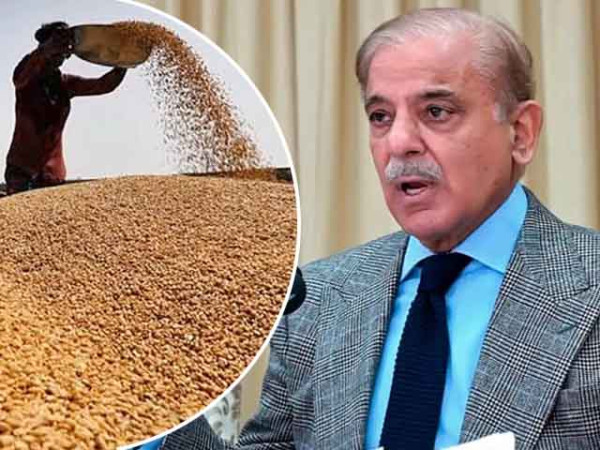ISLAMABAD – The Government of Pakistan has approved its national wheat policy for 2025-2026, setting a procurement price of 3,500 rupees per maund in a significant move aimed at balancing the nation’s food security needs with the economic hardships faced by its farmers.
The policy was greenlit during a high-level meeting chaired by Prime Minister Muhammad Shehbaz Sharif, which included the chief ministers of Punjab, Sindh, Balochistan, and Gilgit-Baltistan, alongside other key stakeholders, signaling a broad national consensus.
Addressing the participants, the Prime Minister underscored the crop’s vital role. “Pakistan is an agricultural economy, and the wheat crop is of key importance,” Sharif stated. “It is not only the staple food for the people of Pakistan but also the largest source of income for the country’s farmers.”
Describing farmers as the “backbone of Pakistan’s economy,” the Prime Minister acknowledged the government’s awareness of the difficulties they face and affirmed that all possible efforts are being made for their welfare.
Key Policy Features
Under the new policy, the federal and provincial governments will jointly procure approximately 6.2 million tons of wheat to build strategic reserves.
To ensure farmers receive a fair price, the procurement will be conducted at 3,500 rupees per maund, a rate benchmarked against the international import price of wheat. Officials stated this measure is designed to “ensure a fair price and profit for farmers while maintaining market competitiveness.”
In a crucial decision to stabilize supply, the policy dictates that there will be no restrictions on the inter-provincial movement of wheat, ensuring its availability across the country.
A New Oversight Mechanism
To monitor implementation, a “National Wheat Monitoring Committee” will be established, chaired by the Federal Minister for National Food Security. This committee, which includes representatives from all provinces, will meet weekly and report directly to the Prime Minister.
Furthermore, the Prime Minister directed PASCO to procure an additional 400,000 metric tons of wheat to bolster the strategic reserves.
Prime Minister Sharif expressed confidence that this consensus-based policy will promote agricultural development, increase farmer incomes, and play a vital role in ensuring food security for the Pakistani people.



